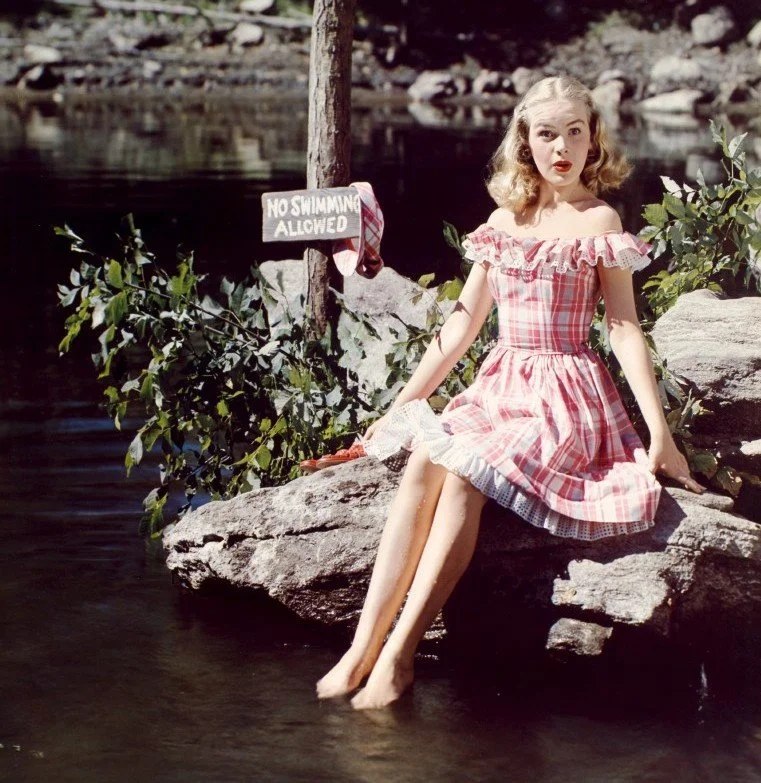Trying it on
Whether we follow the rules depends on our values — and whether we’re willing to accept the consequences of not following them. (George Eastman Museum)
I was out shopping at the Dillard’s in Atlantic Station, Atlanta, when I saw the most gorgeous silk dress.
It was a designer piece. I checked the price, ready to cringe. It was $350. And this was over a decade ago, so that would be more like $450 today.
I had mountains of debt and a pretty low income. My next thought was, “I can’t afford this dress.”
And then I felt resentful and ashamed and helpless. Familiar feelings. Go-to feelings, when money was involved.
But then I wondered if maybe I was giving this dress more power over me than it deserved.
I reminded myself that I was in charge of my priorities. If I really wanted the dress, I could theoretically find a way to buy it. I could cut back on things. I could sell things.
But as a matter of fact, I was getting way ahead of myself. I realized that I didn’t even know whether I wanted the dress. So I thought, “Well, let me just try it on.”
I did try it on, and guess what? I didn’t like it. The textile was beautiful, but the fit and cut were not.
So it wasn't that I was a loser who couldn't afford the dress. I didn't want the dress. I was choosing not to buy it. I was choosing to deploy my resources elsewhere.
This was a revelation to me. As a person living in the modern world, I was constantly coming up against opportunities to spend money. And every time, I felt bad because I couldn’t afford stuff. It hadn’t occurred to me that maybe I wouldn’t even want it even if I had the money to buy it.
So I began letting myself try things on, metaphorically speaking. And that helped me to be more discerning. I began to evaluate deals differently. I put myself in the shoes of someone who had the money to spend, yet made shrewd decisions.
“I wouldn’t buy this house for two million dollars — it’s only worth 1.5.”
“If I had $60,000, I wouldn’t spend it on this car.”
I readily acknowledge the privilege that I have. Good credit, a college education — the list goes on. But I had those privileges before I made this mindset shift, which has nothing to do with my actual income and everything to do with how I see myself and the full spectrum of my choices.
When I assumed that I couldn’t afford things, I remained in a state of lack, feeling as though I was a victim of my circumstances.
When I looked at the situation from a more elevated perspective, I gained an opportunity to reason at a higher level and tap into a deeper wisdom.
“I can’t afford it,” is kind of a cop-out. It takes away my agency and responsibility. On the other hand, when I explore the possibility that I could find a way to get something I truly want, I can practice divergent thinking. So much is possible if we are willing to approach a problem creatively.
And, of course, I have a chance to practice discernment. Just because something seems out of reach doesn’t mean it’s more valuable to me.
Asking myself questions like, “Do I even want this?” and “Would I choose this if I had more than enough money?” has changed my relationship with money and allowed me to make much wiser choices. It’s helped me to be content with my 900-square-foot home and 15-year-old car.
If I really wanted more, I could find a way to get it. But when I try it on, I realize that I don’t want it after all.





